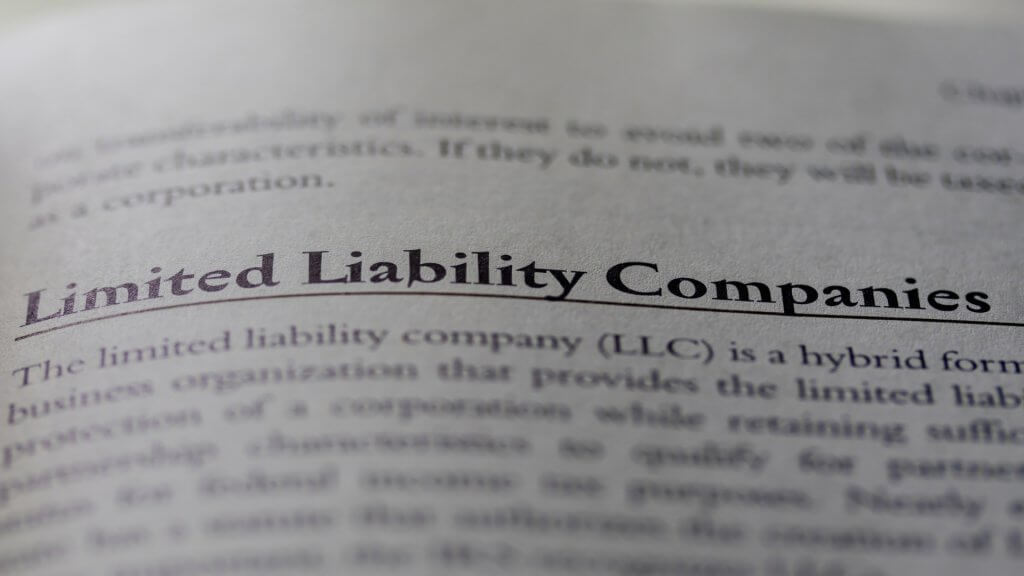Business goals, partnerships, and management styles can change occasionally. When the directors and executives of an established corporation wish to enjoy a more flexible management style and profit allocation, switching to a limited liability company (LLC) structure is a wise option. This structure provides the benefits of a corporation while allowing for more relaxed management and tax flexibility.
Switching or converting a corporation to an LLC cannot be done quickly and easily. So, before you decide to change the structure of your business, below are four things you should know:
1. Check If Your State Provides For Statutory Conversion
Switching a corporation to LLC can be done in several ways, and the process would differ depending on your chosen method.
In most states, a statutory conversion is available to aid corporations in their conversion. You must check with the laws of your state or consult a lawyer to familiarize yourself with the rules and processes. In most cases, the state will require your company to prepare an LLC conversion plan and then file it, along with other documents, with the state secretary.
If your state does not provide a statutory conversion, then you can consider the following methods:
- Statutory Merger: If your state does not provide a statutory conversion specifically for corporations switching to LLC, then you can make use of a statutory merger. The difference, however, is that you must form an LLC first.
In a statutory conversion, the corporation is converted into an LLC without needing a new entity. On the other hand, in a statutory merger, the corporation and LLC merge into a new entity that operates as an LLC.
When the LLC is established, the corporation’s stockholders have to vote in favor of a merger and exchange their shares with LLC membership rights. Once the merger is approved, the new LLC entity will own the corporate assets, assume the remaining liabilities, and continue the life of the business.
- Manual Conversion: The process is similar to that of statutory mergers. However, you must manually transfer the assets and liabilities of the corporation to the new LLC. After that, the corporation also needs to be dissolved.
The dissolution of the corporation will entail a different process since you need to file dissolution documents with the state secretary. Manual conversion is the lengthiest and most expensive method. Transfer of corporate assets to the LLC could incur tax liabilities, depending on the laws of your state.
A statutory conversion is the most straightforward method for corporations planning to switch to an LLC. A statutory merger is also a good alternative if your state does not provide statutory conversions.
2. Tax Implications
Switching your corporation to an LLC structure will have significant tax implications. As mentioned, transferring corporate assets to the new LLC can incur tax liabilities. In addition, LLCs are taxed differently than corporations.
LLCs are not subject to double taxation like corporations, where the company and its shareholders are taxed. Instead, LLCs are pass-through entities where profits and losses flow through the members’ tax returns.
This means that the LLC itself does not pay taxes, but rather the individual members are responsible for reporting their share of the profits or losses on their personal tax returns. It is important to ensure that all necessary documentation is prepared and organized during the adjustment phase to avoid issues during tax filing season.
3. Significant Changes In The Executive And Administrative Staff
LLCs are known for being more flexible in terms of management structure. LLCs can be managed by their owners or a designated manager, allowing for more control and decision-making power. This is unlike corporations, which must have a board of directors.
Additionally, LLCs are not required to hold regular meetings or keep formal minutes, reducing administrative tasks. This means some of your staff might be left without a job position or need to be reassigned to different departments.
During the adjustment period, you must prepare for possible tensions and conflicts. Aside from job loss, a change in management structures may result in confusion about roles and responsibilities. Thus, it’s essential to ensure the previous stockholders and directors, who are now LLC members, are on the same page during the switch.
4. Possible Loss Of Investors
Since LLCs are not bound to keep formal minutes or file records of corporate paperwork, some investors can lose confidence in your business. This lack of transparency can also make it difficult to secure funding or partnerships with larger companies that may require more formal documentation and record-keeping.
The solution is establishing a record-keeping system in the LLC to gain investor confidence. The law may not require LLCs to keep formal corporate records, but they are not prohibited from doing it for their own benefit.
The management needs to provide clear and concise information about the changes to avoid misunderstandings and rumors that could further damage investor confidence. Additionally, involving key stakeholders in decision-making can help build trust and ensure a smoother transition.
In Summary
Switching your corporation to an LLC will have management and tax implications. Possible conflicts will also arise between members due to changes in the management structure and business processes. Investor confidence might also be affected, but these situations can be mitigated through effective communication and transparency.
Keeping proper records can help your LLC build trust with potential investors and partners, as it shows that the company is committed to transparency and accountability. Additionally, a record-keeping system can help LLCs track their financial performance and make informed business decisions.






















